Themes
We celebrate each day of Media Literacy Week by highlighting aspects of digital media literacy - use, understand, engage, access - and putting a special focus on skills to verify online information. On this page, learn more about the five themes and explore some suggested resources to use and share throughout the week!
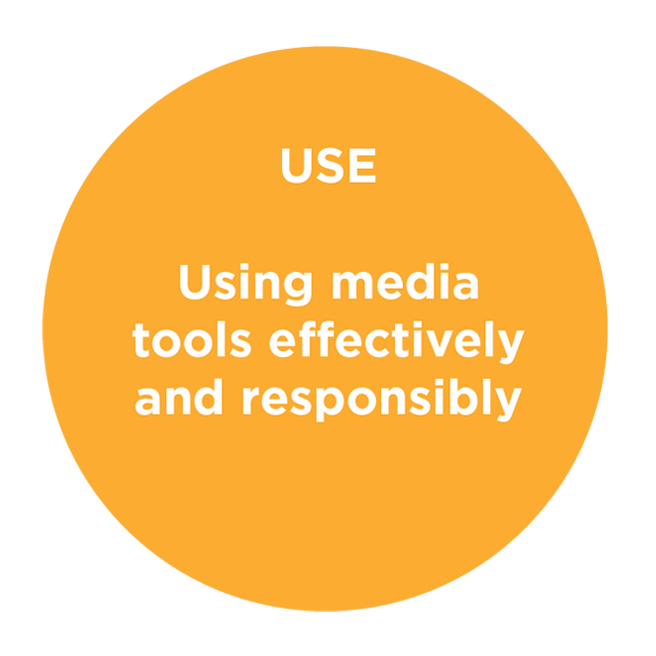
Use
Use represents the skills needed to safely and effectively use media, computers and the internet.
Skills that fall under use include using tools and platforms such as cameras, web browsers and media-making apps; using media tools to promote positive physical and mental health and reduce safety risks; and balancing the pros and cons of digital media tools.
Game: Data Defenders
Tutorial: Raising Ethical Kids For a Networked World
Tip sheet: Building your brand: Establishing a positive presence online
Understand
Understand is the set of skills that help us comprehend, contextualize and critically evaluate digital media so that we can make informed decisions about what we do and encounter online. It includes recognizing how technology affects our behaviour and our perceptions, beliefs and feelings about the world around us as well as understanding how media influence our views about what’s real, what’s important and whose voices matter.
Workshop: Half Girl, Half Face
Tip sheets: News you can use, Talking to kids about gender stereotypes, Talking to kids about hate in media
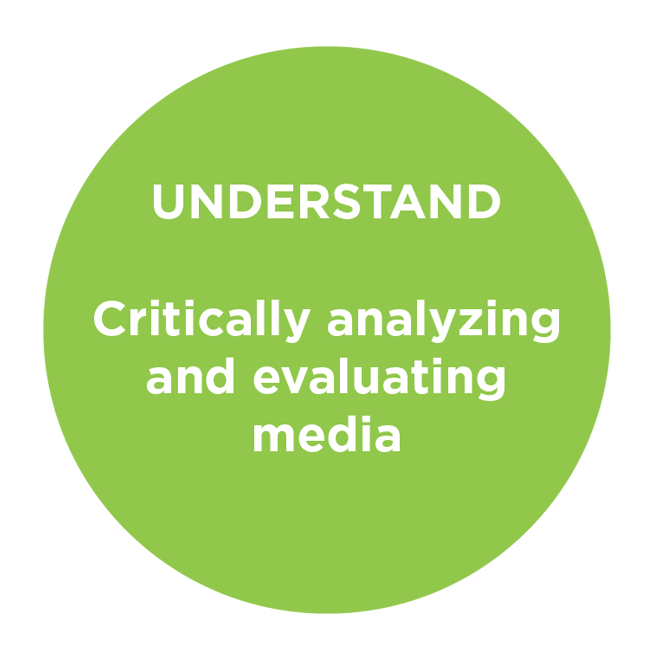
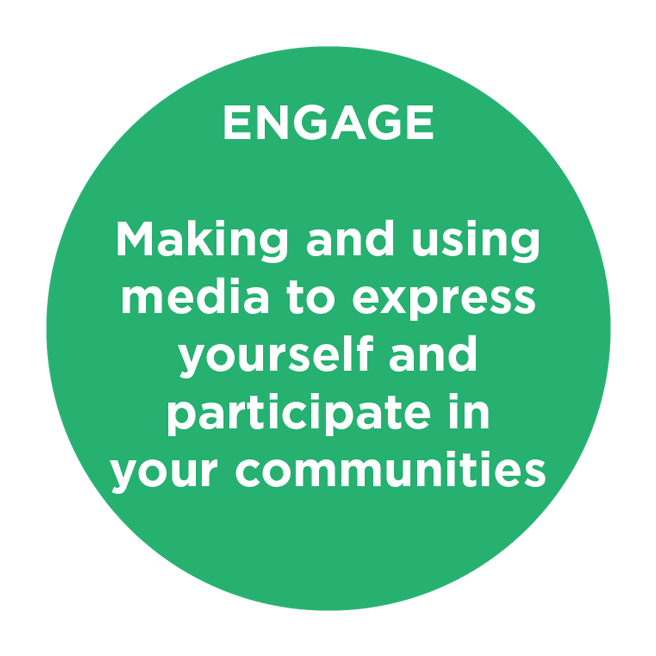
Engage
Engaging with digital media is more than knowing how to write an email: it includes being able to adapt what we produce for various audiences; create and communicate using media such as images, video and sound; reflect on the social and political implications of media and use media tools for community engagement; and engage with Web 2.0 user-generated content effectively and responsibly. The ability to engage using digital media ensures that Canadians are active contributors to digital society.
Tutorial: Raising Ethical Kids For a Networked World
Tip sheet: How to push back against hate online
Other: Check Then Share, Speak Up! Your guide to changing the world, online and off
Access
Access involves safely and ethically finding and navigating media. It includes the technical knowledge needed to access online content; the ability to navigate networked media using hyperlinks, search engines and databases; knowing about copyright-free content and being able to exercise user rights under Fair Dealing; and to specialized access skills such as finding free or low-cost internet serve or using screen readers.
Tip sheets: Four tips for managing your kids’ screen time, How to search the internet effectively, Think before you share, Getting the goods ethically
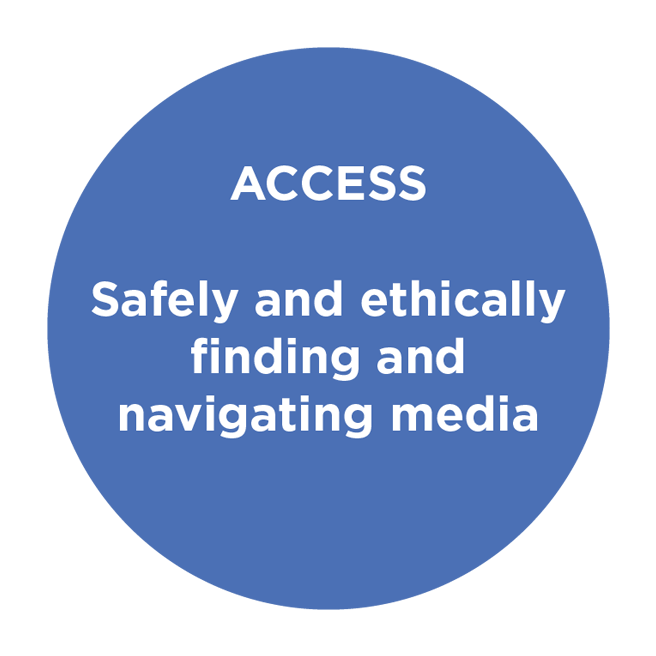
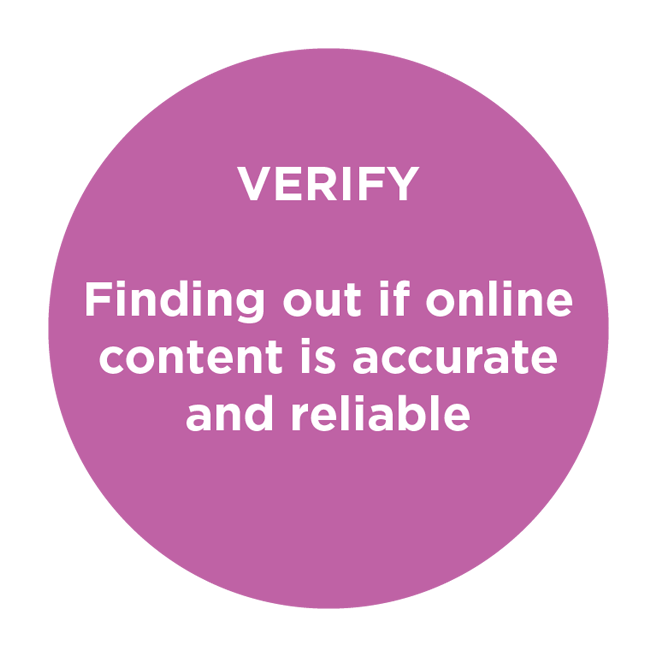
Special focus: Verify
More than ever, Canadians need the skills to effectively search the internet for information, then evaluate and authenticate the sources and information they find.
Verification skills cross all four core competencies, from knowing how to effectively access information through search engines and databases, to using verification tools like fact-checkers and reverse image search, to understanding how to recognize bad-faith arguments and cherry-picked statistics, to engaging with misinformation by correcting or debunking it by sharing accurate, reliable information with our online communities.
Resources: Break the Fake, Check Then Share, Reality Check

